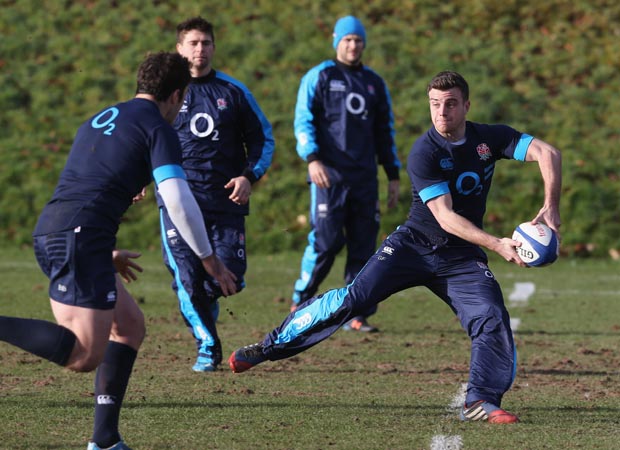
 Stuart Lancaster is a careful planner, so when I asked him this week about his bench policy in the opening two rounds of the Six Nations, and he said he had a plan, you believe him.
Stuart Lancaster is a careful planner, so when I asked him this week about his bench policy in the opening two rounds of the Six Nations, and he said he had a plan, you believe him.
My question, more specifically, was why the England head coach had not yet picked a promising fly-half like George Ford to cover Owen Farrell in what is the key tactical position on the pitch?
What underpinned the question was that with the Scots at a low ebb under Scott Johnson – annihilated by South Africa in the autumn and, in the first round by Ireland – England’s visit to Murrayfield had been a heaven sent opportunity to blood Ford.
Especially, as, despite bringing Ford in for a week’s training before the French game, Lancaster had spurned the opportunity to put the Bath No.10 on the bench in Paris.
To his credit Lancaster is prepared to answer questions candidly, and he was true to form at Wednesday’s briefing during the England camp at the FA’s St George’s training venue and hotel complex near Burton-on-Trent.
He said that his bench strategy against France – which saw Alex Goode covering fly-half and the back three, and Brad Barritt the centres – was dictated by the number of inexperienced backs in his starting line-up, with Luther Burrell and Jack Nowell on debut, Jonny May on one cap, and Billy Twelvetrees on eight.
Lancaster explained: “George trained with the squad for a week ahead of the France game, but obviously Alex Goode has trained and been involved with England for two years now, so he definitely understands the system, and he has played a full Premiership game this season at 10. If I had gone with George for the first game I’d have had a guy with zero caps on the bench.
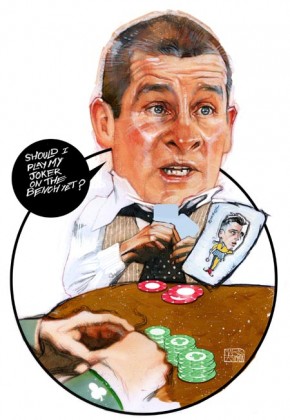 “George has grown during the course of the season – and I’ve known about him for two or three years – but it was complicated (at the start of the Six Nations). The bench selection was channelled by the fact that we had so much inexperience in and around the squad for the France game.”
“George has grown during the course of the season – and I’ve known about him for two or three years – but it was complicated (at the start of the Six Nations). The bench selection was channelled by the fact that we had so much inexperience in and around the squad for the France game.”
And for the Scotland game? “That was more a sense of the group redressing the balance after a painful defeat.”
Lancaster continued: “You’ve got to understand that the integration of a player into an England team, particularly in the key decision-making roles, is very difficult for a young player – or any player – when they have only trained with you for a week.
“We had Toby Flood in the autumn Internationals, and at that point George had only just made the transition to Bath, and in November there were still people charging down his channel and testing him defensively.
“As brave and bold as I am with selection – and you cannot accuse me of not giving young players an opportunity – with a week’s preparation it was going to be difficult for him, and we were more confident going into that game with experience on the bench.”
Lancaster added, “I’m aware of the need to develop George Ford, or Freddie Burns, or whoever at 10. George at the moment is clearly beginning to play consistently well for Bath, but he’s a 20-year-old fly-half who is only just beginning to make his mark in the Premiership.”
When it was pointed out that was the same age at which he capped Owen Farrell, Lancaster responded: “Remember that (in 2012) Owen started at 12 when Charlie Hodgson was at 10. So there was an evolution to it – but when Charlie was injured by the third game against Wales I was confident in Owen (moving to fly-half). The questions you ask are, does he understand the system and the calls, can he integrate, and does he have the respect of the other players?”
Up to that point all of Lancaster’s strategy is easily understood, irrespective of whether you agree with it — which, as outlined in these pages regularly before this Six Nations, I don’t.
What is harder to understand is why Ford is not already integrated and familiar with England’s systems and calls.
Also the idea that he is a callow novice does not ring true. Ford has already won a Premiership title, guiding Leicester home 37-17 against Northampton in last season’s Twickenham final in front of 81,000 after Toby Flood was forced off 24 minutes into the match (with the Tigers leading 10-5).
Also perplexing is Lancaster’s suggestion that he is excited by the prospect of playing the first Test of the summer tour of New Zealand without half his side (due to its proximity to the Premiership final). And doubly perplexing when he broaches introducing a new fly-half in the same game.
Offer the alternative view that selecting a new fly-half to pilot a weakened side in an opening away Test against the All Blacks is asking for trouble, and is categorically not the right time to do it, and he responds, “But, equally, when is? There are no friendlies, are there?”.
No, but there are easier games than against the world champions – like Scotland. And Ireland, Wales and Italy.
Lancaster says he is pondering his next move.
“What we do next hasn’t been decided yet, and you make a fair point, but you have to give me a bit of time to work through it.
“Part of what has gone through my mind is that George has now spent a week training with us and understands a lot more of what we are about and are trying to achieve.
“He has to go back and translate that in Premiership games – which he did last week against Newcastle, and there’s another opportunity this weekend. Then everything is back in the equation for next week against Ireland.
“However, any changes will come in a phased fashion. It would not be right to drop Owen after his performance against Scotland, but I accept that there needs to be an evolution so that other people get an opportunity.”
Having a plan that includes Ford on the bench against Ireland would be a good place to start.


International Rugby
Henry Slade pulls out of England’s tour of Argentina and the USA through injury

British and Irish Lions
British and Irish Lions told: Beware Australian dirty tricks

International Rugby
George Ford joins 100 club in England victory over Argentina

















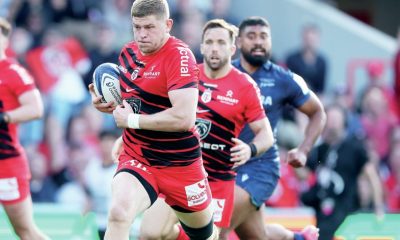

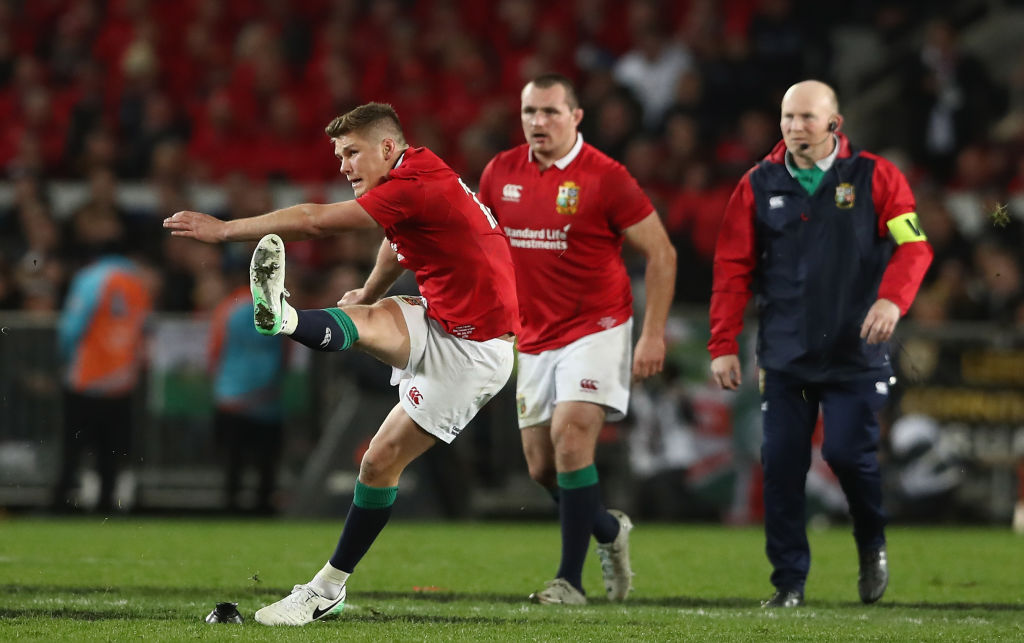
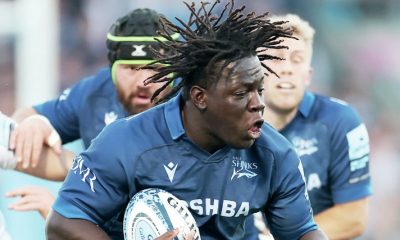

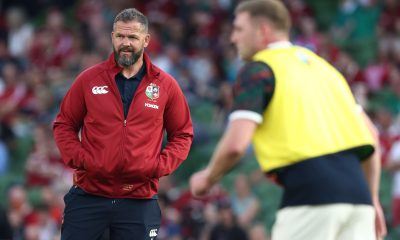



You must be logged in to post a comment Login